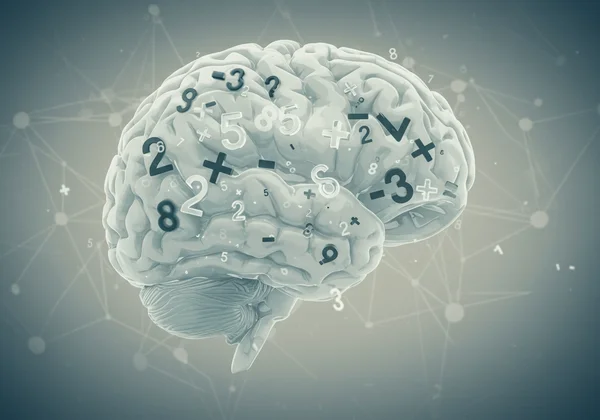Dyscalculia Signs in Adults: 10 Hidden Symptoms to Spot
July 21, 2025 | By Aisha Bennett
Have you always felt 'bad at math,' constantly struggling with numbers, budgeting, or time? You're not alone. Many adults unknowingly live with dyscalculia, a specific learning difference that goes far beyond simply being weak at math. If you've ever wondered, "Do I have dyscalculia or am I just bad at math?", this guide is for you. We will explore the subtle, often overlooked signs of dyscalculia in adults that might be impacting your daily life, and show you how to explore the first step toward understanding.
This isn't about failing algebra class; it's about a persistent pattern of challenges that can affect your confidence, career, and daily routines. Recognizing these signs is your first step toward empowerment and discovering strategies that truly work.
Understanding Adult Math Difficulties: More Than Just Numbers
For many adults, the idea of a "math problem" is tied to memories of school. But dyscalculia is not about academic failure. It is a neurodevelopmental difference in how the brain processes numbers, which can create significant hurdles in adulthood long after formal education has ended. Understanding these challenges is key to moving past self-blame and toward effective solutions.

The Nuances of Dyscalculia Beyond School Grades
Unlike a poor grade on a calculus exam, dyscalculia affects the foundational skills of "numeracy." This includes an intuitive understanding of quantities, concepts like "more than" or "less than," and the ability to link a number symbol (like "5") to the quantity it represents. For adults, this can manifest as difficulty grasping graphs in a work presentation or struggling to adjust a recipe's serving size, tasks that have little to do with complex formulas but everything to do with innate number sense. It's a cognitive difference, not a lack of effort.
Why Adult Symptoms Often Go Unnoticed
Many adults with undiagnosed dyscalculia have spent a lifetime developing clever coping mechanisms. You might be the person who always uses a calculator, even for simple sums, or who avoids games that involve scoring. You might have gravitated toward careers that you perceive as "math-free." These strategies, while effective for getting by, can mask the underlying issue, leading you to believe you're just "not a numbers person" instead of recognizing a consistent pattern of cognitive challenges.
Spotting the 10 Hidden Signs of Dyscalculia in Adults
Dyscalculia shows up in ways that extend far beyond a checkbook. These dyscalculia symptoms in adults can affect your relationship with time, space, and daily planning. Here are 10 hidden signs that your struggles might be more than just being bad at math.
Daily Life Challenges: Beyond Basic Arithmetic
-
Difficulty with Time Management & Scheduling: Do you frequently misjudge how long a task will take? People with dyscalculia often struggle to read analog clocks, calculate trip durations, or stick to a schedule. Planning appointments and managing deadlines can feel like a constant, exhausting battle.
-
Persistent Financial Woes: Budgeting, calculating a tip, or understanding a sales discount can cause genuine anxiety. This isn't about complex financial planning; it's about the everyday math of managing money. You might find yourself overspending because estimating costs is difficult, or you may avoid checking your bank account altogether.

- Navigation & Spatial Reasoning Issues: Confusing left and right, struggling to read maps, or having difficulty judging distances are common spatial challenges linked to dyscalculia. This can make following directions or navigating new places incredibly stressful, as your brain struggles to process the directional and quantitative information.
Abstract & Conceptual Difficulties
-
Poor Number Sense: This is a core feature. It's an intuitive grasp of numbers that most people take for granted. You might find it hard to estimate how many people are in a room, compare two prices quickly, or know if an answer to a simple calculation is reasonable without working it out on paper.
-
Struggling with Sequential Tasks: Many everyday activities require following steps in a specific order, like a recipe or assembly instructions. Dyscalculia can make it hard to keep track of these sequences, especially if they involve measurements or numbers.
-
Memory for Numbers: Can you recall phone numbers, PINs, or important dates easily? A weak working memory for numerical information is a classic sign. You might forget numbers moments after hearing them or rely heavily on writing everything down.
Professional & Educational Roadblocks
-
Challenges at Work: In the workplace, tasks requiring data analysis, inventory management, understanding sales figures, or taking precise measurements can be major hurdles. This can limit career choices and create performance anxiety in roles that are not obviously math-heavy.
-
Difficulty Learning New Math-Related Concepts: Whether it's taking a statistics course for professional development or trying to learn basic coding, grasping new concepts that rely on numerical logic can feel impossible. The foundational difficulty with numbers makes it hard to build new skills on top.
Emotional & Psychological Impact
-
Intense Math Anxiety & Avoidance: This is more than just a dislike for math. It can be a genuine feeling of panic or dread when faced with a number-based task. This math anxiety often leads to complete avoidance, which only reinforces the difficulty.
-
Low Self-Esteem Related to Math: After years of struggle, it's common to internalize these challenges as a personal failing. Many adults with dyscalculia carry a deep-seated belief that they are "stupid" or "incompetent," which can significantly impact their overall confidence and mental well-being. Recognizing this as a learning difference can be a powerful act of self-compassion.

Taking the Next Step: Testing for Dyscalculia as an Adult
If many of these signs resonate with you, the next question is naturally, "What do I do now?" The journey to understanding begins with a single, accessible step. Testing for dyscalculia as an adult is not about getting a label; it's about gaining clarity and unlocking strategies for a richer life.
Why Self-Screening Matters for Self-Understanding
A formal diagnosis from an educational psychologist is a comprehensive process. However, a reliable self-screening tool is an invaluable first step. It provides a private, pressure-free way to explore your cognitive patterns. This initial insight validates your lifelong experiences, empowering you to seek the right support. Understanding why you struggle is the key to learning how to succeed. It's a powerful way to gain valuable insight into your own mind.
Our Free Dyscalculia Screening: Your First Step
We believe that self-exploration should be accessible to everyone. That's why we offer a free, comprehensive dyscalculia screening designed by educational psychologists and math experts. It goes beyond a simple score. After the initial questions, you have the option to unlock a personalized AI-driven report that provides a deep dive into your cognitive profile, identifies potential strengths and challenges, and offers tailored strategies. It's a confidential, empowering first step. Ready to understand your math journey better? Take our free dyscalculia test today.

Understanding Your Math Journey: Empowerment Through Insight
Recognizing the signs of dyscalculia in yourself is not an admission of defeat; it is an act of empowerment. It reframes a lifetime of struggle from "I'm bad at this" to "My brain works differently." This shift in perspective is the key to unlocking new strategies, building confidence, and finding tools that support your unique way of thinking. Your journey with numbers doesn't have to be one of anxiety and avoidance.
You are not alone, and there are resources to help. The first step is always understanding. Start your journey to clarity and discover a new way to navigate your world.
Frequently Asked Questions About Adult Dyscalculia & Screening
Do I have dyscalculia or am I just bad at math?
The key difference lies in the pattern and persistence of the challenges. Being "bad at math" might stem from poor teaching, lack of practice, or math anxiety. Dyscalculia, however, is a persistent, neurodevelopmental difficulty with fundamental number concepts, like number sense and quantity estimation, that affects many areas of life, not just schoolwork.
How do you test for dyscalculia as an adult?
A formal diagnosis is typically done by an educational psychologist. However, an excellent starting point is a high-quality screening tool. An online dyscalculia test can help you identify key signs and patterns in a low-stress environment, providing valuable information to help you decide on your next steps.
Is there a free online dyscalculia test available?
Yes, absolutely. We provide a comprehensive and reliable free dyscalculia test on our platform. It is designed by experts and offers an optional, AI-powered personalized report to give you deeper insights beyond just a score, helping you understand your unique cognitive profile.
What's the difference between dyscalculia signs and general math difficulty?
General math difficulty might be specific to certain topics (like algebra or geometry) and can often be overcome with targeted tutoring. The signs of dyscalculia are broader and more foundational. They impact everyday tasks like time management, budgeting, and spatial reasoning, indicating an underlying difference in how the brain processes numerical information.